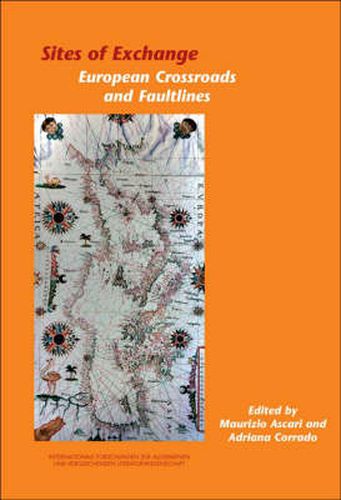Readings Newsletter
Become a Readings Member to make your shopping experience even easier.
Sign in or sign up for free!
You’re not far away from qualifying for FREE standard shipping within Australia
You’ve qualified for FREE standard shipping within Australia
The cart is loading…






Crossing borders - both physically and imaginatively - is part of our ‘nomadic’ postmodern identity, but transcultural and transnational exchanges have also played a major role in the centuries-long processes of hybridisation that helped to fashion the vast geographic, political and imaginative container of diversity we call Europe. This volume gathers together the work of scholars from several European countries in an attempt to encourage a collective reflection upon historical - and often ‘mythical’ - locations and landscapes, as well as upon the thresholds and faultlines that unite or separate them. The issues the volume tackles are delicate and complex, for the encounter of differences engenders both curiosity and suspicion and there is no easy way to create a new synthesis while respecting and promoting diversity. However, since Europe is inevitably a cultural and political entity ‘in the making’, Europeans should embrace the ‘great narrative’ of a ‘utopian project’, uniting their efforts to work towards a civilisation that is grounded on plurality and openness.
$9.00 standard shipping within Australia
FREE standard shipping within Australia for orders over $100.00
Express & International shipping calculated at checkout
Crossing borders - both physically and imaginatively - is part of our ‘nomadic’ postmodern identity, but transcultural and transnational exchanges have also played a major role in the centuries-long processes of hybridisation that helped to fashion the vast geographic, political and imaginative container of diversity we call Europe. This volume gathers together the work of scholars from several European countries in an attempt to encourage a collective reflection upon historical - and often ‘mythical’ - locations and landscapes, as well as upon the thresholds and faultlines that unite or separate them. The issues the volume tackles are delicate and complex, for the encounter of differences engenders both curiosity and suspicion and there is no easy way to create a new synthesis while respecting and promoting diversity. However, since Europe is inevitably a cultural and political entity ‘in the making’, Europeans should embrace the ‘great narrative’ of a ‘utopian project’, uniting their efforts to work towards a civilisation that is grounded on plurality and openness.